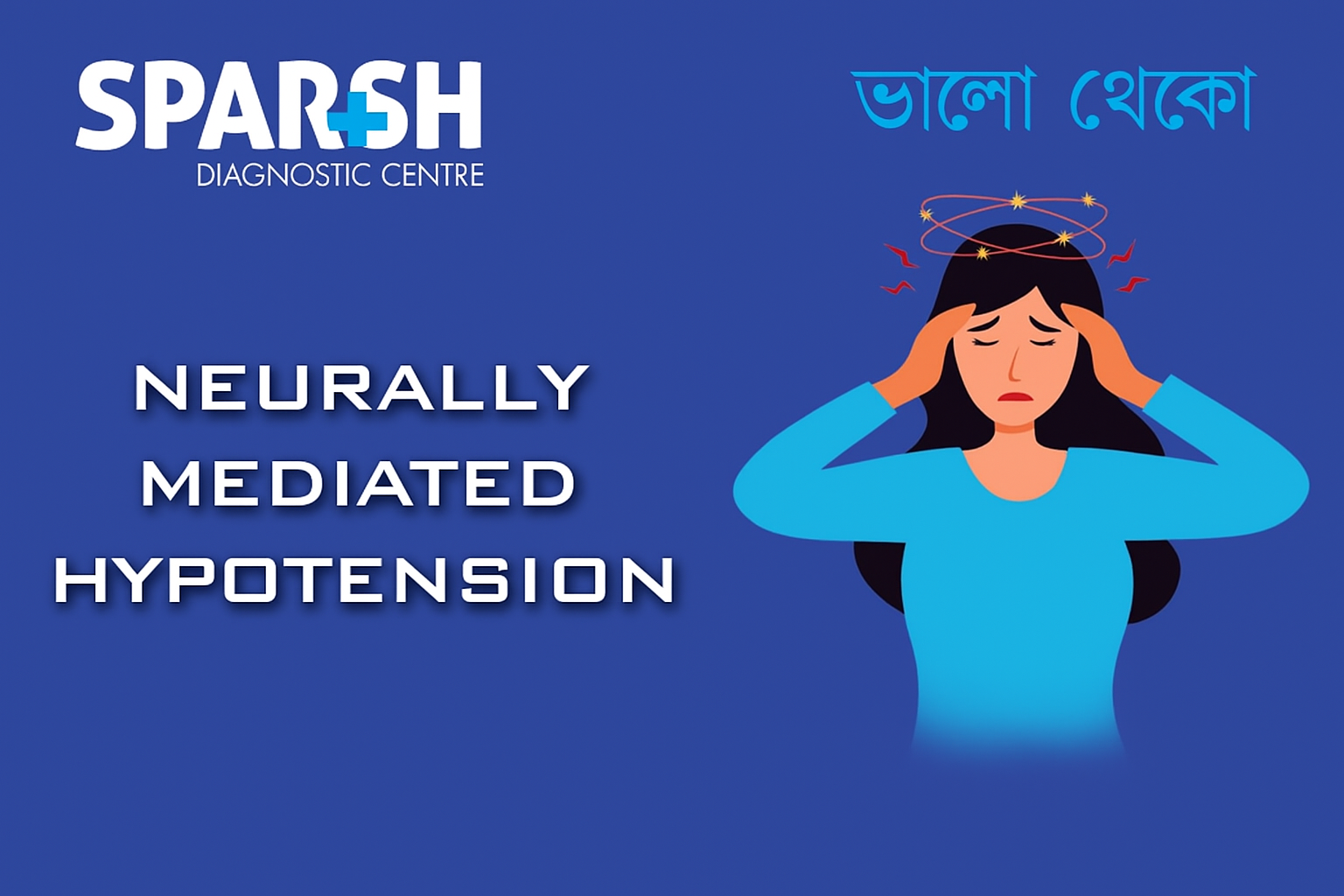Neurally Mediated Hypotension (NMH), sometimes referred to as vasovagal syncope or neurally mediated syncope, is a type of low blood pressure that occurs when the body’s nervous system misinterprets signals and triggers a drop in blood pressure. This can cause dizziness, fainting, fatigue, nausea, and other symptoms that disrupt daily life.
Although NMH is not usually life-threatening, it can result in injuries from falls and significantly affect quality of life if left unmanaged. This comprehensive guide will cover what NMH is, its causes, symptoms, diagnosis, treatment options, and prevention strategies.
What is Neurally Mediated Hypotension?
Normally, when you stand up, gravity causes blood to pool in your legs and abdomen. Your body responds by tightening blood vessels and increasing heart rate to keep blood flowing to the brain.
In NMH, the opposite happens — the nervous system sends the wrong message, slowing the heart rate and dilating blood vessels. This leads to a sudden drop in blood pressure, reducing brain blood flow and triggering fainting or presyncope (near-fainting).
Types of Neurally Mediated Hypotension
NMH is part of a group of fainting conditions caused by abnormal nerve reflexes. The main types include:
Vasovagal Syncope (VVS) – Triggered by emotional distress, pain, or prolonged standing.
Postural Orthostatic Tachycardia Syndrome (POTS) – Features rapid heart rate upon standing without significant blood pressure drop.
Classic Orthostatic Hypotension – Low blood pressure after standing, but without the abnormal nerve reflex seen in NMH.
Causes and Triggers
NMH results from an abnormal reflex between the brain, heart, and blood vessels. Common triggers are:
Prolonged standing, especially in hot weather
Emotional distress or sudden pain
Hunger or missed meals
Heat exposure (sauna, hot showers)
Post-viral fatigue
Blood donation or significant blood loss
Physical exhaustion
Risk Factors
Anyone can develop NMH, but it’s more common in:
Teenagers and young adults
People with naturally low blood pressure
Those recovering from viral infections
People with a family history of fainting
Endurance athletes
Signs and Symptoms
Symptoms may develop gradually or appear suddenly. Common ones include:
Dizziness or lightheadedness
Blurred or tunnel vision
Cold, clammy skin
Sweating
Confusion
Potential Complications
NMH itself isn’t life-threatening, but it can cause:
Injuries from falls during fainting
Reduced ability to work, study, or drive
Anxiety or fear of recurrence
Emotional stress from unpredictable episodes
Diagnosis
1. Medical History & Symptom Review
Doctors will ask about:
Triggers and frequency of fainting
Duration and severity of symptoms
Past medical conditions or medications
2. Physical Examination
Blood pressure and heart rate are measured in lying, sitting, and standing positions.
3. Tilt Table Test
This is the gold standard for NMH diagnosis. You are strapped to a table that tilts to mimic standing, and your blood pressure and heart rate are monitored.
4. Additional Tests
Blood tests for anemia, electrolyte issues, or thyroid problems
Treatment and Management
While NMH cannot be permanently cured, it can be effectively managed.
Lifestyle Modifications
Drink 8–10 glasses of water daily
Increase salt intake (if approved by your doctor)
Eat small, frequent meals
Avoid prolonged standing and hot environments
Use compression stockings to improve circulation
Counter-Pressure Maneuvers
At the first sign of dizziness:
Cross legs and squeeze
Grip hands together and pull
Squat down
These techniques help push blood back to the brain.
Medications
For severe cases, doctors may prescribe:
Fludrocortisone – Increases blood volume
Midodrine – Narrows blood vessels
Beta-blockers – Regulate heart rate in select cases
Physical Conditioning
Low-impact exercise such as swimming or recumbent cycling can improve circulation and reduce symptoms.
Prevention Strategies
Identify and avoid triggers
Rise slowly from sitting or lying positions
Stay hydrated and nourished
Keep snacks and water handy
Educate friends/family on how to help during an episode
Prognosis
Most people manage NMH well with proper treatment and lifestyle adjustments. Teenagers often outgrow the condition, while adults may experience fewer episodes over time.
Living with NMH
Keeping a symptom diary helps track triggers and progress. Wearing a medical ID bracelet is also recommended. Support groups can provide encouragement and shared coping strategies.
Frequently Asked Questions (FAQs) About Neurally Mediated Hypotension
1. What is the difference between neurally mediated hypotension and vasovagal syncope?
While both involve a sudden drop in blood pressure, vasovagal syncope is often triggered by emotional stress or sudden pain, whereas NMH is typically caused by prolonged standing or heat, involving abnormal nerve reflexes.
2. Can neurally mediated hypotension be cured?
There is no permanent cure, but symptoms can be controlled with hydration, salt intake, medications, and trigger avoidance. Many young patients improve with age.
3. How is NMH diagnosed?
The tilt table test is the primary diagnostic tool. Doctors may also check blood pressure in different positions and order ECG or blood tests.
4. What home remedies can help?
Drink fluids, increase salt intake (with medical advice), wear compression stockings, and use counter-pressure maneuvers when symptoms begin.
5. Is NMH dangerous?
Not usually, but fainting can cause injuries. Seek medical advice if episodes happen during exercise or with chest pain.
6. Can exercise help?
Yes. Swimming, walking, and recumbent cycling can improve circulation without causing overheating.
7. What foods are helpful?
Salted nuts, soups, bananas, leafy greens, and electrolyte-rich drinks support blood pressure stability.
8. How can fainting be prevented?
Avoid triggers, stay hydrated, eat regularly, and perform counter-pressure maneuvers at the first sign of dizziness.
9. Is NMH common in children?
Yes, especially during adolescence. Many children outgrow it as their nervous system matures.
10. When should I see a doctor?
If fainting is frequent, occurs with exercise, or is accompanied by chest pain, irregular heartbeat, or confusion, seek immediate care.
#BhaloTheko
Disclaimer:
No content on this site, regardless of date, should ever be used as a substitute for direct medical advice from your doctor or other qualified clinician.

![]()






[…] Vasovagal (Neurally-mediated): The most common type, often triggered by a sudden emotional stress, pain, or prolonged standing. It involves a sudden drop in blood pressure and heart rate. […]
[…] 1. Neurally Mediated Hypotension (NMH) […]